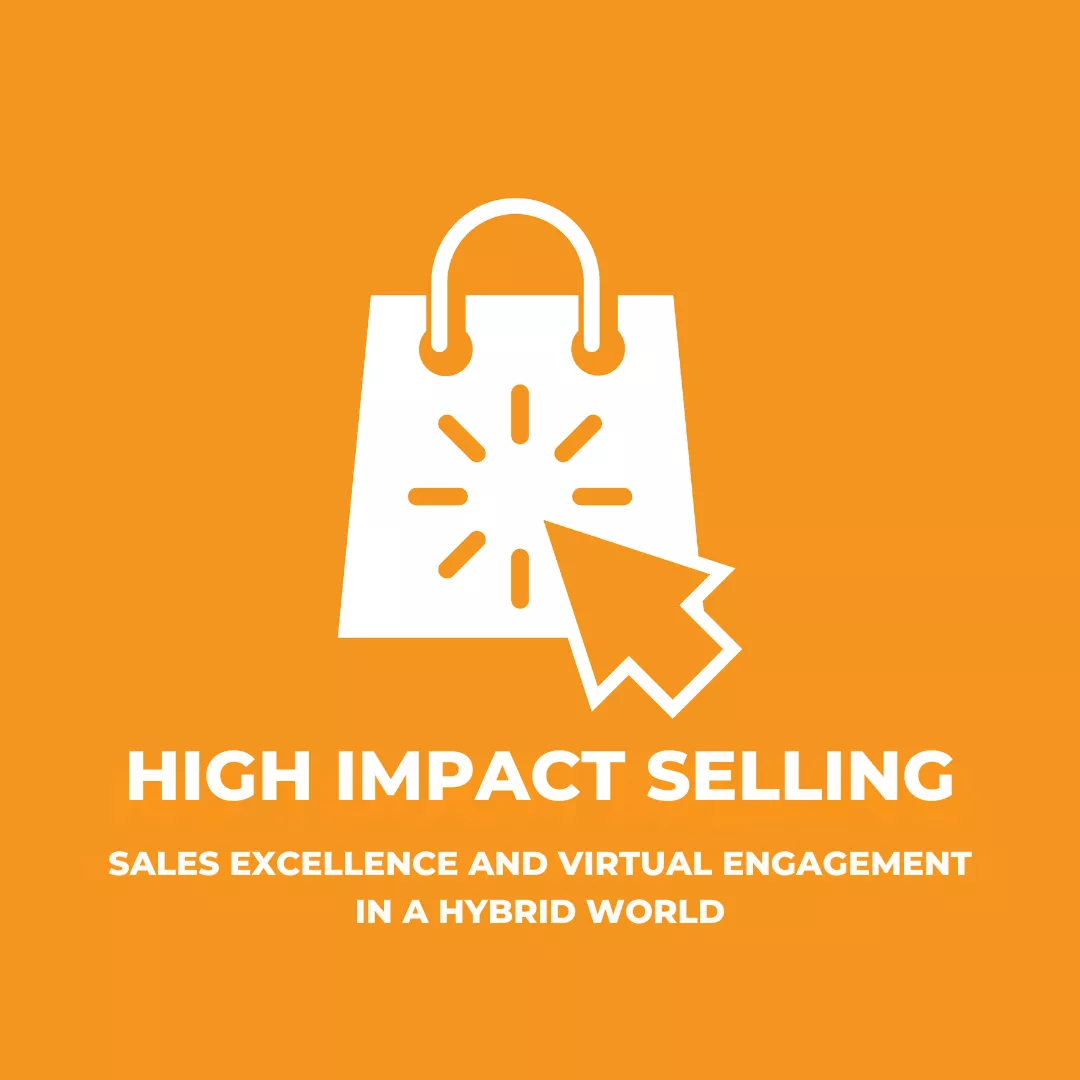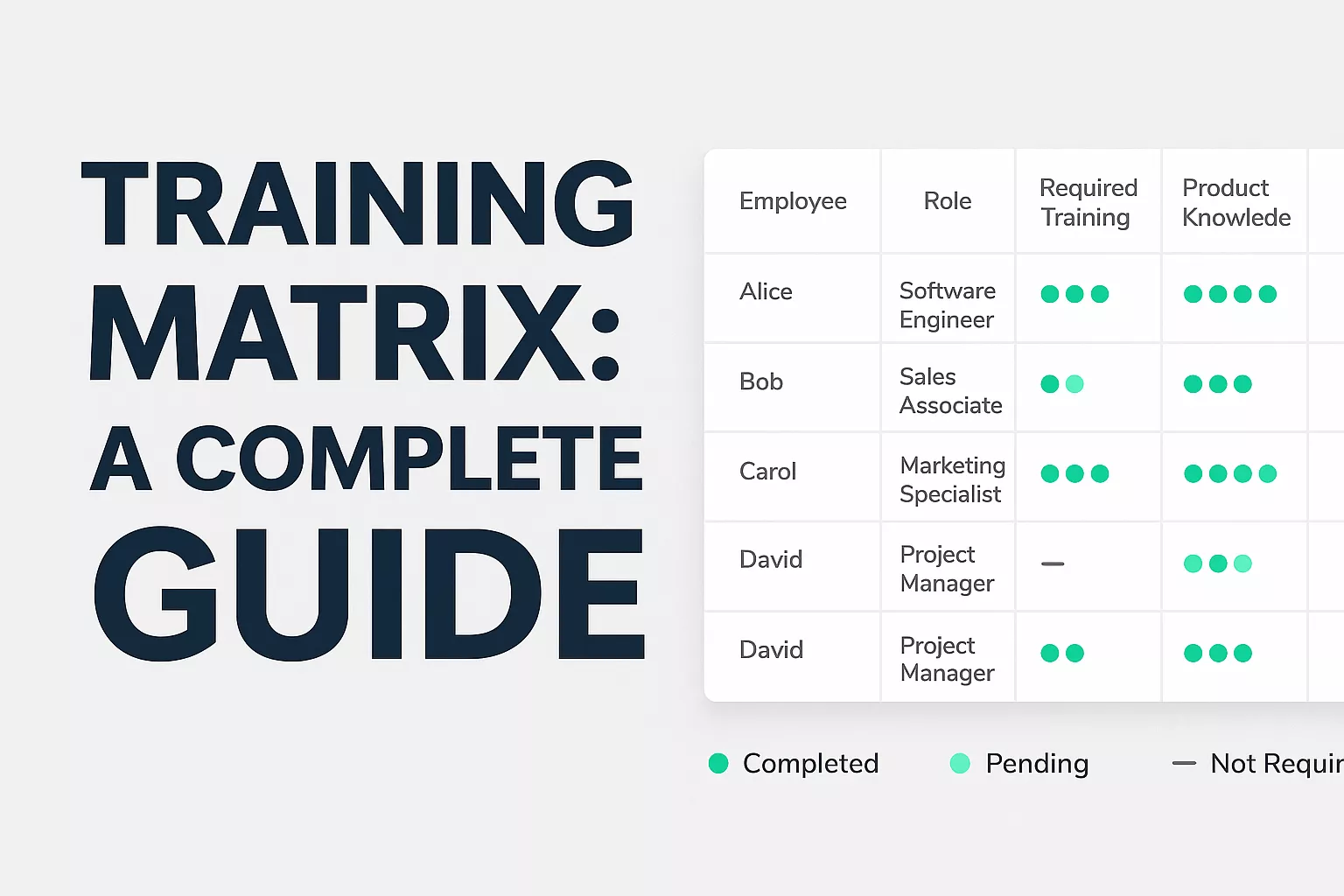by Venchito Tampon | Last Updated on January 14, 2026
Finding the right sales training program can be a game-changer for HR people or learning and development practitioners looking to level up their employees by increasing competencies.
Below are three of the best sales training programs in the Philippines, each designed to equip participants with essential skills and strategies to thrive in the dynamic world of sales.
Contents
Toggle3 Best Sales Training Programs in the Philippines (2026)
1. High-Impact Selling Training
By: Rainmakers
Best For: Sales professionals seeking advanced strategies for hybrid and virtual engagement.
Headquartered In: Metro Manila, Philippines
Industries: Retail, B2B Sales, E-commerce, and Professional Services
Strengths: Focus on modern sales techniques for hybrid work environments.
Pricing: Customizable based on company needs (Contact for details).
Recognizable Clients: Leading corporations across various industries.

Program Highlights:
This program focuses on equipping participants with cutting-edge sales strategies for both face-to-face and virtual selling. Participants learn the nuances of building a personal brand, managing client relationships, and leveraging tools to create a high-impact sales experience. Delivered by expert trainers from Rainmakers, the course is ideal for professionals looking to excel in a hybrid world.
Learn more about High-Impact Selling Training.
2. Art and Science of Selling
By: Jeff Manhilot, Inspire Leadership Consultancy, Inc.
Best For: Professionals and leaders from diverse fields looking to unlock the universal selling skill.
Headquartered In: Quezon City, Philippines
Industries: Leadership, Consultancy, and Corporate Training
Strengths: Unique integration of leadership principles and selling techniques.
Pricing: Available upon request.
Recognizable Clients: Executives and high-potential leaders from multinational companies.
Program Highlights:
This program, led by Jeff Manhilot, emphasizes the life skill of selling and its application beyond traditional sales roles. Participants discover practical steps to market themselves effectively, confidently navigate conversations, and achieve professional growth.
Jeff’s extensive background in leadership and sales ensures that this program combines theoretical insights and real-world strategies for success.
3. Essential Selling
By: Jerome Tuason
Best For: Aspiring and experienced sales professionals looking to build a strong foundation.
Headquartered In: Makati, Philippines
Industries: FMCG, Pharmaceuticals, and Corporate Sales
Strengths: Comprehensive approach to sales fundamentals and practical applications.
Pricing: Offered as a one-day workshop (Contact for details).
Recognizable Clients: Entrepreneurs, executives, and corporate teams.
Program Highlights:
This eight-hour workshop strengthens participants’ understanding of the 7-stage sales process. The program is facilitated by Jerome Tuason, a seasoned sales expert, and offers actionable techniques in prospecting, communication, and closing deals. It also emphasizes creating lasting customer relationships to ensure sustained success in sales.
Each of these programs is tailored to different needs, ensuring that sales professionals at all levels can find the right fit for their goals.
Whether you’re a beginner looking to build a solid foundation or a leader refining your sales strategies, these programs stand out as top choices in the Philippines.
How to Choose a Sales Training Program?
Choosing the right sales training program is a critical step in maximizing the return on investment for your learning and development needs, or it can be an additional expense that is wasted.
A well-suited sales training program provides tools and strategies that directly impact your performance and results.
Below are detailed guidelines to help you make an informed decision:
1. Assess Your Training Needs
Start by identifying the specific sales skills you want your sales team to improve. Ask yourself questions such as:
- Do I need to strengthen foundational skills like prospecting or lead qualification?
- Am I looking to improve specific techniques, like closing deals or handling objections?
- Do I want to adapt to modern sales environments like hybrid or virtual selling?
- Does each of my salesmen need to improve their presentation of our company’s products or offerings? Can they be more confident after the training?
- What advanced skills do my tenured salespeople need to level up with?
Having a clear understanding of your sales training needs helps you narrow down certain areas for improvement. It can help customize the sales training program, whether you want it to be in-house or outsource it to a training provider.
This would help you later in the training evaluation to assess whether the sales training itself has both individual effect on the participants and business impact to the organization.
2. Check the Trainer’s Expertise
The trainer’s background can significantly influence the quality of the program.
Some of our high-end clients look for trainers who:
- Have hands-on experience in sales across various industries. Insights by seeing common patterns in training different verticals can help educate participants with the best practices they can contextualize in their respective industries.
- Hold certifications or have recognition in sales coaching or training. In 90’s, two popular sales training certifications are Zig Ziglar and Brian Tracy. They’re both known for being the top sales trainer for global organizations.
- Demonstrate a proven track record of success in leadership roles or sales strategy development.
For instance, programs led by professionals with extensive experience in B2B, corporate sales, or specific industries offer actionable insights that align with your real-world challenges.
Given they get insights from experiences and expertise of their participants of different organizations, they can share real-world case studies and scenarios your audience can relate to.
3. Evaluate the Sales Training Program
The program’s content and outline should align with your learning objectives. Examine if the content:
- Covers essential topics like negotiation, relationship-building, and objection handling. There may be more to it, depending on the current context, such as how to do virtual presentations, especially for hybrid teams – overall, the essential topics must be covered in the sales training.
- Provides advanced modules for specific sales contexts, such as consultative selling or customer-centric approaches.
- Incorporates modern sales trends, including using CRM tools or virtual engagement strategies.
A comprehensive sales training program ensures you gain foundational and advanced skills contributing to long-term growth. It should balance both theories (i.e. principles) and practical application to create a holistic learning experience for participants..
4. Consider Industry Focus
Some programs specialize in addressing the nuances of particular industries. Whether you are in B2B, FMCG, retail, or healthcare, a program tailored to your industry:
- Reflect on the unique challenges and opportunities in your field.
- Use case studies and examples relevant to your work environment.
- Enhances your ability to apply learned techniques directly to your role.
Choosing an industry-specific program ensures relevance and applicability to your day-to-day tasks.
It’s not that easy to find a corporate training provider who can customize a sales training program to fit to your current context. Today, the best corporate trainers are the ones who can both customize their training programs based on the organizational’s training needs as well as individual learning needs of participants.
The latter is hard to find, as you would normally just observe it during the training delivery and training evaluation.
5. Look for Hands-On Training
Theoretical knowledge is essential, but practice solidifies learning. Opt for programs that include:
- Role-playing exercises to simulate real-world sales scenarios.
- Practical activities like drafting proposals or conducting mock sales presentations.
- Peer-to-peer feedback and coaching from trainers.
Hands-on training allows you to refine your approach, receive constructive feedback, and build confidence in applying new skills.
Any corporate training program, including sales training program must include activities, role-play and workshops to immediately apply principles and tips shared by the sales trainer.
6. Verify Flexibility
Sales professionals often juggle busy schedules, so flexibility is critical. Check if the program offers:
- Modular sessions that allow you to learn at your own pace.
- Options for in-person, online, or hybrid learning formats.
- Customizable programs tailored to your organization’s specific needs.
Flexibility ensures that training fits seamlessly into your professional and personal commitments.
In many organizations, sales people are very busy professionals, so having a 1-day schedule to train them, can be challenging. Find a corporate training agency who can adjust to your schedule, if it’s possible.
7. Read Reviews and Testimonials
Past participants’ feedback provides valuable insight into a program’s effectiveness. When reviewing testimonials, focus on:
- Specific outcomes achieved by previous attendees, such as improved sales performance or client acquisition.
- Experiences shared about the trainer’s teaching style, course content, and overall engagement.
- Ratings on the program’s relevance, applicability, and ROI.
Authentic reviews can help you gauge whether a program delivers on its promises.
At Rainmakers, we have a couple of testimonials from our past and current clients, giving you the preview of how our actual sales training look like, and how it benefits our training participants.
8. Examine Post-Training Support
Practical training doesn’t end when the program concludes. Look for programs that provide:
- Post-training materials, such as guides, templates, or toolkits.
- Access to trainers for follow-up questions or advice.
- Networking opportunities with other participants to share experiences and strategies.
Post-training support enhances retention and helps you implement what you’ve learned effectively.
In 5 levels of training evaluation, two of which, learning reaction and retention can be both applied after every training delivery. We typically provide our training participants an evaluation form they have to fill up, for us to see their main takeaways and how they could apply learnings to their day-to-day work.
9. Compare Costs and ROI
While pricing is an essential factor, focus on the value you will receive. Consider:
- The program’s cost is relative to the skills and certifications it offers.
- Long-term benefits include increased sales, better client retention, and improved confidence.
- Additional perks, like access to exclusive resources or future discounts.
Investing in a high-quality program can yield significant returns in your career and business outcomes.
In fact, budget must be one of the top considerations before searching for potential training providers. As this would also play crucial when picking high-quality sales trainers (as most will charge premium given their extensive experience and expertise).
Set Non-Negotiables and Negotiables When Choosing a Sales Training Program
Choosing the right sales training program requires careful consideration of your goals, the trainer’s expertise, and the curriculum’s relevance.
By following these guidelines, you can select a program that empowers you to succeed in sales, whether through closing more deals, building stronger client relationships, or adapting to new selling environments.
A thoughtful decision ensures your training investment translates into measurable career success.
The Author
Venchito Tampon
Venchito Tampon is a Filipino motivational speaker, Business Consultant, Founder and Lead Corporate Trainer of Rainmakers Training Consultancy. He trained and spoken in over 250+ conventions, seminars, and workshops across the Philippines and internationally including Singapore, Slovakia, and Australia. He has worked with top corporations including SM Hypermarket, Shell, and National Bookstore.
He also founded SharpRocket, a digital marketing company, Blend N Sips, eCommerce for coffee supplies, and Hills & Valleys Cafe, a local cafe with available franchising.
He is a certified member of The Philippine Society for Talent Development (PSTD), the premier organization for Talent Development practitioners in the country.
An active Go Negosyo Mentor (of Mentor Me program) and a business strategist and consultant.
You may also like
Best Leadership Training Providers in the Philippines [2026]
If you’re short on time: After evaluating 15+ corporate training providers in…
Training Matrix: A Complete Guide
Training mix is a structured framework that helps HR and Learning and…



